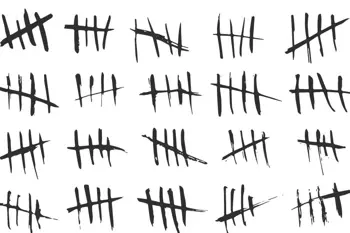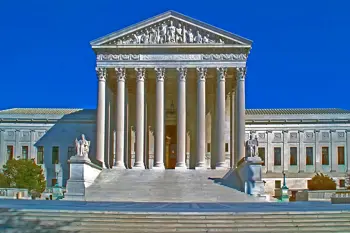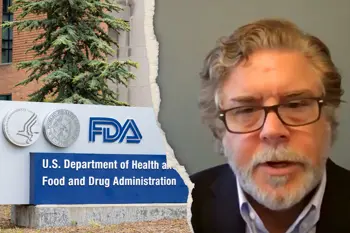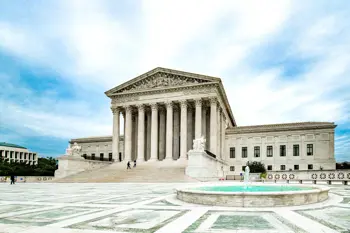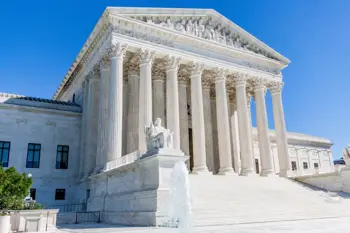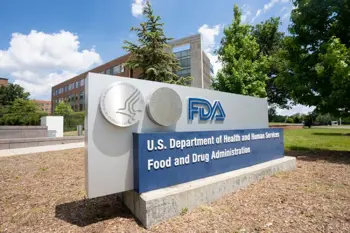For the first time, the FDA has filed civil money penalty complaints against four small vaping businesses, alleging that they continued selling e-liquid after receiving FDA warning letters.
The Food, Drug, & Cosmetic Act (of which the Tobacco Control Act is a part) provides for a maximum civil money penalty (CMP) of $19,192 for a single violation relating to tobacco products. The agency is seeking the maximum penalty for the four companies named today. They are:
- BAM Group LLC (VapEscape) - Montgomery, AL
- Great American Vapes LLC - Shreveport, LA
- The Vapor Corner Inc. - Albany, GA
- 13 Vapor Co. LLC (13 Vapor) - Norman, OK
All four vaping companies are located in the South, and appear to be single-outlet retail businesses that manufacture proprietary e-liquids and sell them on site. All four received warning letters for selling unauthorized products in 2021 or early 2022, but FDA on-site inspections later confirmed they continued to sell forbidden products, according to the FDA complaints.
If these companies wanted to sell nicotine products without going through an impossibly complex process of FDA review, they should have stuck to combustible cigarettes. That'll show'em! https://t.co/GIDjPaOFY3
— Jacob Grier (@jacobgrier) February 22, 2023
Two of the cited companies (BAM Group and Great American Vapes) submitted premarket tobacco applications (PMTAs) that were rejected in the first wave of marketing denial orders (MDOs) in late summer 2021. Great American Vapes was one of three companies that received an MDO on the first day the FDA began to issue them.
The companies must respond within 30 days, and can pay the penalty, enter into a settlement agreement, request an extension of time to file an answer to the complaint, or file an answer and request a hearing. Companies not responding within 30 days, according to the FDA, “risk a default order imposing the full penalty amount.”
The complaints were filed Feb. 15, but announced today, with a splashy press release and statements from Brian King, the FDA Center for Tobacco Products (CTP) director. King is scheduled to answer questions from vaping consumers and vaping industry representatives at a public event this Friday, Feb. 24, held by the American Vapor Manufacturers Association (AVM).
Coming up this Friday!
This virtual event is free and registration is open to the public. https://t.co/bIrYaj6c4R
— Gregory Conley (@GregTHR) February 21, 2023
“Holding manufacturers accountable for making or selling illegal tobacco products is a top priority for the FDA,” King said in the FDA press release. “We are prepared to use the full scope of our authorities to enforce the law—especially against those who have continued to violate the law after being warned by the agency.”
Last October, the FDA enlisted help from the Department of Justice to seek injunctions against six tiny vape companies the agency said either didn’t respond to warning letters or refused to stop doing business after acknowledging warning letters.
The FDA says it has issued more than 550 warning letters since January 2021 to companies selling “tobacco products” without marketing authorization—most of them small e-liquid manufacturers like the companies cited today. According to the agency, most warning letter recipients have removed their products from the market.
“Crushing tiny domestic manufacturers will do nothing to change adult consumer demand for flavored harm reduction products like vaping,” AVM Vice President Allison Boughner said today in response to today’s FDA actions. “That’s because there are 12 to 18 million American adults who vape and the vast majority prefer non-tobacco flavors. This boneheaded approach by FDA combines failed drug war tactics with an appalling indifference to prevailing science that vaping is vastly safer than cigarettes and the most effective way to quit smoking.”
Since the FDA granted itself regulatory authority over vaping products in 2016, the agency has authorized seven unpopular vaping devices (and tobacco-flavored refills for each) to be sold in the United States. PMTAs for millions of vaping products—mostly bottled e-liquid—have been rejected by the agency.
